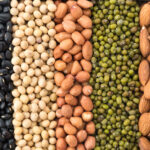For individuals with allergies or dietary restrictions, navigating the dairy aisle can be a daunting task. The sheer variety of milk products available, combined with the need to find suitable alternatives, can leave you feeling overwhelmed. However, with a little knowledge about milk substitutes, you can confidently choose options that not only meet your dietary needs but also taste great. In this guide, we’ll explore some popular milk substitutes and help you make informed choices.
- Soy Milk:
Soy milk is one of the most common milk alternatives. Made from soybeans, it has a creamy texture and a slightly nutty flavour. Soy milk is a good source of protein, calcium, and vitamin D. It is also versatile and can be used in cooking, baking, and as a stand-alone beverage. However, if you have a soy allergy, this may not be the best option for you.
- Almond Milk:
Almond milk is a popular choice among those with dairy allergies. It is made by blending almonds with water and then straining the mixture to remove the solids. Almond milk has a light, slightly sweet flavour and is often fortified with vitamins and minerals, such as calcium and vitamin D. It is low in calories and can be used in various recipes. However, if you have a nut allergy, you should avoid almond milk.
- Coconut Milk:
Coconut milk is derived from the flesh of mature coconuts. It has a rich, creamy texture and a distinct tropical flavour. Coconut milk is a good source of healthy fats and is often used in curries, smoothies, and desserts. However, it is higher in calories compared to other milk alternatives. If you have a tree nut allergy, be cautious as coconut is classified as a tree nut by the FDA, although it is a fruit and not a true nut.
- Oat Milk:
Oat milk is gaining popularity as a dairy alternative. Made from oats and water, it has a mild, slightly sweet taste. Oat milk is naturally free from lactose, nuts, and soy, making it suitable for many people with allergies. It is also a good source of fiber and can be used in beverages, cereals, and recipes. However, if you have celiac disease or a gluten sensitivity, make sure to choose a certified gluten-free oat milk option, as oats can be cross-contaminated with gluten during processing.
- Rice Milk:
Rice milk is made from milled rice and water. It has a thin and watery consistency with a naturally sweet taste. Rice milk is hypoallergenic, meaning it is unlikely to cause allergic reactions and is well-tolerated by most people. However, it is lower in protein and other nutrients compared to cow’s milk or other milk alternatives. It can be a suitable choice for those with multiple allergies or sensitivities.
- Hemp Milk:
Hemp milk is made from ground hemp seeds mixed with water. It has a slightly nutty flavor and a creamy texture. Hemp milk is a good source of omega-3 fatty acids, which are beneficial for heart health. It is also rich in vitamins and minerals. However, it may not be suitable for those with a hemp or cannabis allergy.
- Pea Milk:
Pea milk is a relatively new addition to the milk substitute options. It is made from yellow peas and has a creamy texture and mild flavour. Pea milk is rich in protein and is often fortified with vitamins and minerals. It is a good alternative for those with soy, nut, or gluten allergies. However, individuals with pea allergies should avoid this option.
When choosing a milk substitute, consider your specific allergies or dietary restrictions. Read ingredient labels carefully to ensure the product does not contain any allergens that you need to avoid. Fortified versions of milk substitutes can provide added nutrients like calcium, vitamin D, and B vitamins.
It’s important to note that not all milk substitutes are suitable for infants and young children. Consult with a healthcare professional or a registered dietitian before introducing any milk substitute to an infant’s diet.
Navigating the dairy aisle with allergies or dietary restrictions may seem challenging, but with the wide range of milk substitutes available, you can find an option that suits your needs and tastes great. Experiment with different alternatives and discover the ones that work best for you. Remember, making informed choices and being aware of your allergens is key to enjoying a delicious and nutritious milk substitute.








